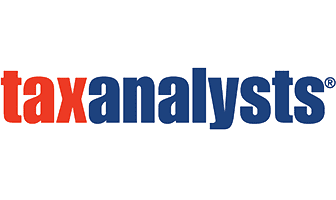
Tax-Free Fringe Benefits for the Self-Employed
A comprehensive Employee Benefits Plan under Section 132 coupled with Section 119 Lodging and Meals is the most sophisticated and underutilized planning tool for starting small businesses. For a complete analysis of Section 119 Employer-Provided Lodging and Meals for starting small business owners, read our blog journal article here.
This is for small business owners. As you already know, generally, anything of value transferred by the business to the owner is considered income whether it be cash or assets. What your current tax advisory probably has never mentioned to you, however, is how fringe benefits is the exception to this general rule.
Fringe benefits are expenses that are deductible by the business but not considered income to you. In other words, it results in double non-taxation. Tax-free fringe benefits include, but not limited to:
1. 401(k) Plan. Depending on the maximum contributions for the year in question, a 401(k) plan, can shelter thousands ($20,500 in 2022) from income tax.
2. Section 106, Health Savings Account. Normally, medical expenses are only deductible to the extent they exceed 10% of your adjusted gross income. Let’s say your Adjusted Gross Income for the year in question is $100,000 and your total medical expenses were $10,300 for year. That would mean that your deduction would be $300 because your Adjusted Gross Income was $100,000, so 10% would be $10,000; thus, you could only deduct medical expenses to the extent it exceeded $10,000. However, with a Health Savings Account, more commonly called an HSA, you could have sheltered thousands ($7,300 in 2022) from income tax.
3. Section 129, Dependent Care Assistance Benefit. If you as the business owner have children, you can provide on-site daycare facility to your employees during working hours that you too can use. The idea here is that, as long as your employees are aware of the benefit and can utilize it as well, you can make your nanny your company’s Director of Family Services. This is in-line with Congressional intent as well because the objective is to encourage employers to make child care benefits available to employees.
4. Section 132(a)(1), (b), No-Additional-Cost-Service. Within limits, this effectively allows you to use your own staff for personal use. Basically, any service you offer to the public, you can provide to yourself for free and it’s not considered income. The vast majority of people already do this not realizing it’s entirely permissible under the Code.
5. Section 132(d), Working Condition Benefit. The statutory language on this one is very broad. The IRS promulgated a regulation (Treas Reg. § 1.132-5) that attempts to narrow and limit it, but it contradicts the broad language in the statute itself. Nevertheless, as long as for primarily business purposes, this captures chauffeur services, bodyguards, security detail, aircraft, and more. Basically, anything you need to do your job; it’s incredibly broad. This statutory provision was enacted in 1989 and there’s only been one single court case that went in favor of the taxpayer, which was a casino/hotel that let staff stay in vacant rooms and eat for free.
6. Company Retreat Real Estate Property. This could be a beachfront property or mountain luxury cabin home. It would have to be titled to the company and subject to creditors in the event of dissolution, but if the primary purpose for purchasing it is for use as a company retreat and actually used at least once a year as such, it would be fully depreciable on your business return. If and when you utilize the property, it must be primarily for business (e.g., working from the property for the weekend accompanied by family for a mental health distance from the office). If it’s primarily for personal, the fair market value of the rent for that period could be considered income to you. When the IRS examines this issue, they will ask for statements from participants to inquire whether work was actually performed. Therefore, you would want to have documented proof of the work performed, such as emails being sent during that period as well as new Microsoft Word documents created during that time or invoices being sent out. Basically, have a paper trail to prove you actually worked. With today’s modern technology, this could be done from your smartphone, which is basically a miniature handheld computer. Our firm takes the novel position that smartphones constitute a computer and, therefore, the vast majority of modern business owners are always at their work desk as long as they have their smartphone with them. This reflects the reality that business owners understand to be true.

-
"Their team provided excellent service, they were professional, very knowledgeable, attentive and provided clear advice/support for my specific situation."
-
The firm truly defines excellence.
Skyler P. -
Very great company to work with.
Michael H.
7. Section 132(e), De Minimis Benefit. This expressly captures meals, Uber, company parties, single-event tickets for anything like a concern or sport, snacks, and drinks. However, it can capture much more. The express statutory language says “any property or service the value of which is (after taking into account the frequency with which similar fringes are provided by the employer to the employer’s employees) so small as to make accounting for it unreasonable or administratively impracticable.” It even captures meal money, local transportation, transit passes, “occasional cocktail parties, group meals, or picnics for employees and their guests; traditional birthday or holiday gifts of property (not cash) with a low fair market value; occasional theater or sporting event tickets; coffee, doughnuts, and soft drinks; local telephone calls; and flowers, fruit, books, or similar property provided to employees under special circumstances (e.g., on account of illness, outstanding performance, or family crisis).” However, the IRS chose to specifically exclude “season tickets… membership in a private country club or athletic facility… employer-provided group-term life insurance on the life of the spouse or child of an employee; and use of employer-owned or leased facilities (such as an apartment, hunting lodge, boat, etc.) for a weekend” unless the employee is working from that location.
8. Section 280F-Exempt Vehicles. The limits on deducting vehicles only applies to vehicles that weigh under 6,000 pounds. If a vehicle weighs more than 6,000 pounds, it would be exempt from the Section 280F limits. The following vehicles weigh more than 6,000 pounds and are exempt from Section 280F:
- Audi Q7
- Bentley Bentayga
- BMW X5, X6
- Buick Enclave
- Cadillac XT5, XT6, Escalade
- Chevrolet Silverado, Suburban, Tahoe, Traverse
- Chrysler Pacifica
- Dodge Durango, Grand Caravan
- Ford Expedition, Explorer, F-150 and larger
- GMC Acadia, Sierra, Yukon
- Honda Pilot 4WD, Odyssey
- Infiniti QX80, QX56
- Jeep Grand Cherokee
- Land Rover Range Rover, Discovery
- Lexus GX460, LX570
- Lincoln MKT AWD, Navigator
- Mercedes-Benz G550, GLS, GLE, Metris, Sprinter
- Nissan Armada, NV 1500, NVP 3500, Titan
- Porsche Cayenne
- Tesla Model X
- Toyota 4Runner, Landcruiser, Sequoia, Tundra
9. Section 132(j)(4), On-Premises Gym or Athletic Facility. If the gym is located on a Section 119 property, a company retreat home, or a standard business property, it’s fully deductible.
What does this mean for a small business owner? You are both the employer and the employee. This is not a legal fiction; it’s a reality. That’s why the IRS imposes the Self-Employment Tax, which is really both the employer and employee share of social security and Medicare taxes. For all legal purposes, you are both the employer and the employee. While that’s bad for social security tax purposes, it’s great for fringe benefits because now you can create the most gracious Employee Benefits Plan for the company’s most important employee: you.
Put plainly, it means you operate out of your home in order to deduct your entire mortgage or rental payment as employer-provided lodging, all utilities, your work vehicle, your groceries used for daily meals on the premises, your personal assistant as your Chauffeur, barbeques with family and friends (other companies allow employees to bring family and friends to gatherings without apportionment requirements), picnics, caffeinated drinks, any drinks for that matter, gifts to employees, sporting events you attend, and much more. However, it’s critical to have a well-drafted Employee Benefits Plan and to document and track all expenses. The IRS certainly doesn’t enjoy taxpayers getting wise on them, so they’ll likely initiate an examination to see if you truly have a written Employee Benefits Plan on file and have properly documented all expenses. But with our firm handling the implementation and maintenance of the Employee Benefits Plan, the IRS would be compelled to close-out any examination in your favor. Our firm only engages in the kind of planning you can openly disclose to the IRS without any concern.
To schedule a free consultation, click on the Contact Uspage and submit an online inquiry.

-
Free Consultations
-
Experienced & Thoroughly Published Attorneys
-
Innovative Solutions
-
Sophisticated Global Tax Planning
Complete our form below or call us at (833) 227-8761.
-
![Business Interest Deduction: A Guide for Business Owners | Castro & Co. [2024] Photo Business Interest Deduction: A Guide for Business Owners | Castro & Co. [2024] Photo](data:image/gif;base64,R0lGODlhAQABAIAAAAAAAAAAACH5BAEAAAAALAAAAAABAAEAAAICRAEAOw==) Business Interest Deduction: A Guide for Business Owners | Castro & Co. [2024]Read More
Business Interest Deduction: A Guide for Business Owners | Castro & Co. [2024]Read More -
 Drug Use May Constitute Reasonable Cause for the Avoidance of PenaltiesRead More
Drug Use May Constitute Reasonable Cause for the Avoidance of PenaltiesRead More -
![What Can You Do If You Can't Pay Your Business Taxes | Castro & Co. [2024] Photo What Can You Do If You Can't Pay Your Business Taxes | Castro & Co. [2024] Photo](data:image/gif;base64,R0lGODlhAQABAIAAAAAAAAAAACH5BAEAAAAALAAAAAABAAEAAAICRAEAOw==) What Can You Do If You Can't Pay Your Business Taxes | Castro & Co. [2024]Read More
What Can You Do If You Can't Pay Your Business Taxes | Castro & Co. [2024]Read More -
![Taxes for Etsy Shop Owners | Castro & Co. [2024] Photo Taxes for Etsy Shop Owners | Castro & Co. [2024] Photo](data:image/gif;base64,R0lGODlhAQABAIAAAAAAAAAAACH5BAEAAAAALAAAAAABAAEAAAICRAEAOw==) Taxes for Etsy Shop Owners | Castro & Co. [2024]Read More
Taxes for Etsy Shop Owners | Castro & Co. [2024]Read More -
![How Much Should Your Small Business Pay In Taxes? | Castro & Co. [2024] Photo How Much Should Your Small Business Pay In Taxes? | Castro & Co. [2024] Photo](data:image/gif;base64,R0lGODlhAQABAIAAAAAAAAAAACH5BAEAAAAALAAAAAABAAEAAAICRAEAOw==) How Much Should Your Small Business Pay In Taxes? | Castro & Co. [2024]Read More
How Much Should Your Small Business Pay In Taxes? | Castro & Co. [2024]Read More -
 Who Said Depreciation Was Mandatory?Read More
Who Said Depreciation Was Mandatory?Read More -
![Small Business Taxes in Texas Overview | Castro & Co. [2024] Photo Small Business Taxes in Texas Overview | Castro & Co. [2024] Photo](data:image/gif;base64,R0lGODlhAQABAIAAAAAAAAAAACH5BAEAAAAALAAAAAABAAEAAAICRAEAOw==) Small Business Taxes in Texas Overview | Castro & Co. [2024]Read More
Small Business Taxes in Texas Overview | Castro & Co. [2024]Read More -
![How Can A Small Business Lower Their Tax Bill? | Castro & Co. [2024] Photo How Can A Small Business Lower Their Tax Bill? | Castro & Co. [2024] Photo](data:image/gif;base64,R0lGODlhAQABAIAAAAAAAAAAACH5BAEAAAAALAAAAAABAAEAAAICRAEAOw==) How Can A Small Business Lower Their Tax Bill? | Castro & Co. [2024]Read More
How Can A Small Business Lower Their Tax Bill? | Castro & Co. [2024]Read More











![Business Interest Deduction: A Guide for Business Owners | Castro & Co. [2024] Photo Business Interest Deduction: A Guide for Business Owners | Castro & Co. [2024] Photo](/cms/thumbnails/34/385x188/images/blog/is-interest-paid-to-the-irs-tax-deductible-for-business.2312140842331.jpg)

![What Can You Do If You Can't Pay Your Business Taxes | Castro & Co. [2024] Photo What Can You Do If You Can't Pay Your Business Taxes | Castro & Co. [2024] Photo](/cms/thumbnails/34/385x188/images/blog/what-can-I-do-if-I-cant-pay-my-business-taxes.2312121459472.jpg)
![Taxes for Etsy Shop Owners | Castro & Co. [2024] Photo Taxes for Etsy Shop Owners | Castro & Co. [2024] Photo](/cms/thumbnails/34/385x188/images/blog/taxes-for-etsy-shop-owners.2312120921406.jpg)
![How Much Should Your Small Business Pay In Taxes? | Castro & Co. [2024] Photo How Much Should Your Small Business Pay In Taxes? | Castro & Co. [2024] Photo](/cms/thumbnails/34/385x188/images/blog/how-much-will-my-small-business-pay-in-taxes.2312111222374.jpg)

![Small Business Taxes in Texas Overview | Castro & Co. [2024] Photo Small Business Taxes in Texas Overview | Castro & Co. [2024] Photo](/cms/thumbnails/34/385x188/images/blog/small-business-taxes-in-texas.2312071352450.jpg)
![How Can A Small Business Lower Their Tax Bill? | Castro & Co. [2024] Photo How Can A Small Business Lower Their Tax Bill? | Castro & Co. [2024] Photo](/cms/thumbnails/34/385x188/images/blog/how-can-a-small-business-lower-thier-taxes.2312051359092.jpg)